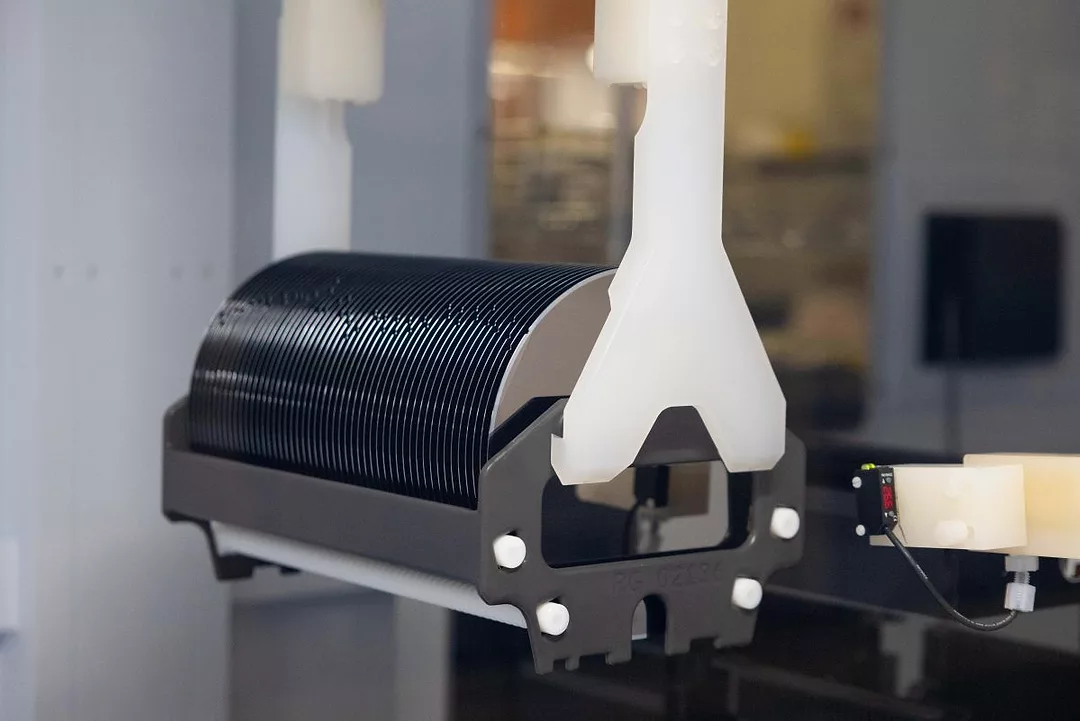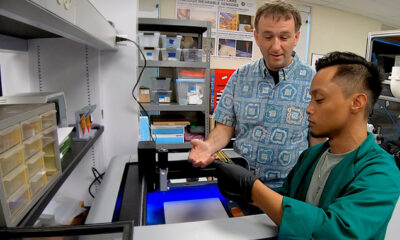World
Europe’s Auto Industry Faces Immediate Chip Shortages Amid Export Restrictions

Production in Europe’s automotive sector is at risk of significant disruption due to China’s recent export restrictions on semiconductors produced by Nexperia. Within days, key suppliers may face shortages, potentially affecting the entire industry in a matter of weeks. This situation arises from a decision by Beijing to block Nexperia, a Dutch chipmaker owned by Wingtech Technology Co., from exporting products manufactured in its Chinese facilities.
The restrictions were prompted by the Dutch government’s seizure of control over Nexperia under emergency laws, aimed at protecting strategic production capabilities. According to Hildegard Müller, head of Germany’s VDA auto lobby, the situation could lead to “significant production restrictions, possibly even production stoppages in the near future.”
Impact on the Automotive Sector
Sources indicate that the repercussions of these restrictions could manifest within a week, with broader effects anticipated within 10 to 20 days. Carmakers and their suppliers are currently holding crisis meetings with government officials to devise contingency plans. Nevertheless, they warn that sourcing and qualifying alternative components could take months rather than days.
The ramifications are expected to extend beyond Europe, impacting U.S. automakers as well, particularly those relying on smaller parts and electronics manufacturers that utilize Nexperia chips. The sudden nature of the Dutch government’s control over the company took many in the industry by surprise, particularly after pressure from Washington.
Infineon Technologies AG, a major supplier to the automotive industry, has reported receiving inquiries from manufacturers seeking alternative component sources. Initially caught off guard, automakers and suppliers have since begun establishing communication with Chinese authorities, as well as officials in the Netherlands and the European Commission, to clarify the extent of the export controls and explore measures to mitigate the fallout.
Automaker Responses and Strategies
In response to the crisis, Volkswagen AG has launched a task force to evaluate its supply chain exposure. Meanwhile, Robert Bosch GmbH, the world’s largest auto-parts manufacturer, stated that its expert teams are in regular contact with Nexperia and other affected suppliers and customers to minimize production disruptions. A spokesperson for Bosch commented on October 21, 2023, saying, “Like other Nexperia customers, we are facing major challenges due to the current situation. We therefore hope for a swift resolution among the parties involved that will help ease the current supply bottleneck.”
Similarly, a representative from Mercedes-Benz Group AG noted that while the company is actively monitoring the developments, it has secured short-term chip supplies. However, the spokesperson acknowledged that the situation remains unstable and difficult to forecast. “We are working intensively with our partners to avoid potential supply gaps,” the spokesperson stated via email.
As the automotive sector grapples with this potential crisis, the urgency for solutions becomes increasingly apparent. The outcome of ongoing discussions and the effectiveness of contingency plans will largely determine how quickly the industry can adapt to these new challenges.
-

 Science3 months ago
Science3 months agoUniversity of Hawaiʻi Joins $25.6M AI Project to Monitor Disasters
-

 Business3 months ago
Business3 months agoForeign Inflows into Japan Stocks Surge to ¥1.34 Trillion
-

 Entertainment2 months ago
Entertainment2 months agoHudson Williams Gains Popularity as Breakout Star on Heated Rivalry
-

 World3 months ago
World3 months agoBoeing’s Merger with McDonnell Douglas: A Strategic Move Explained
-

 Science2 months ago
Science2 months ago$1.25M Grant Advances Hawaiʻi’s Real-Time Hazard Monitoring
-

 Entertainment3 months ago
Entertainment3 months agoSydney Sweeney Embraces Body Positivity Amid Hollywood Challenges
-

 Top Stories3 months ago
Top Stories3 months agoBOYNEXTDOOR’s Jaehyun Faces Backlash Amid BTS-TWICE Controversy
-

 World3 months ago
World3 months agoFrench Film Explores Group Therapy in ‘Group – The Schopenhauer Project’
-

 Top Stories3 months ago
Top Stories3 months agoUrgent Farewell: Joleen Chaney Leaves Legacy at KFOR
-

 Top Stories3 months ago
Top Stories3 months agoMarc Buoniconti’s Legacy: 40 Years Later, Lives Transformed
-

 Lifestyle4 months ago
Lifestyle4 months agoKelsea Ballerini Launches ‘Burn the Baggage’ Candle with Ranger Station
-

 Top Stories3 months ago
Top Stories3 months agoCarson Wentz Out for Season After Shoulder Surgery: Urgent Update









